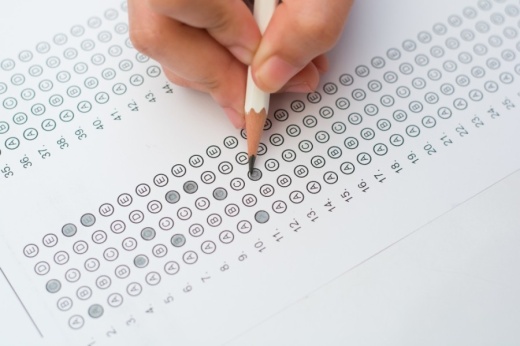The board of trustees met Oct. 20 to pass a resolution regarding the annual exam and its corresponding district accountability rating, which ranks ISDs using an A-F scale.
Students throughout the state were exempt from STAAR testing during the 2019-20 school year as districts grappled with mandated closures caused by the coronavirus pandemic. EISD’s resolution states the continued suspension would allow districts to focus on instructional gaps potentially created by remote learning.
In June, Texas Commissioner of Education Mike Morath told the State Board of Education that all students would be required to participate in STAAR testing this year, whether that student was engaged in remote learning, in-person instruction or a blended model.
In response, EISD Superintendent Tom Leonard and Board President Jennifer Champagne sent a letter to Morath, Gov. Greg Abbott and other state officials July 14 that called, in part, for the suspension of STAAR.
While STAAR testing has not been suspended for 2020-21, Abbott did roll back certain requirements in July, including the grade promotion requirement for students in fifth through eighth grades. Those students will still receive a rating, but a poor score will not prevent them from promotion to the next grade, according to a release from Abbott’s office.
“One of the reasons I support this resolution is because I think if the STAAR test goes forward this year, what it’s really going to highlight is inequity,” trustee John Havenstrite said.
Trustee Heather Sheffield was in agreement and claimed that a student’s STAAR score is in direct correlation to how much money their parents earn. Sheffield serves as the President of Texas Asking for Meaningful Student Assessment, or TAMSA, which has also called upon state officials to waive the exam requirement.
“The purpose of this is to show our students they are worth more than a STAAR score,” Sheffield said.
When Abbott mandated a statewide school closure in April, EISD quickly pivoted to remote classes. District officials have affirmed that this was a lofty challenge but was made easier by the EISD’s student iPad program, which was in place prior to the pandemic.
Havenstrite acknowledged that rural school districts did not have the same technological capabilities and that, as a result, some of those districts and students are struggling. Furthermore, if an ISD performs poorly, there can be long-term impacts, according to Havenstrite.
Trustee Ellen Balthazar said that given the pandemic, she is in favor of eliminating those high stakes. However, she said, the diagnostic nature of the exam is beneficial to districts, many of which, she argued, rely on that data.
EISD administers a number of annual assessments, but that does not hold true across the state, according to Chief Learning Officer Susan Fambrough.





